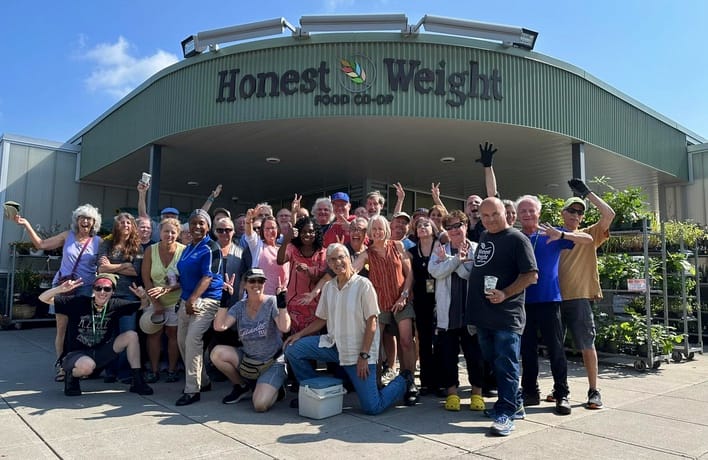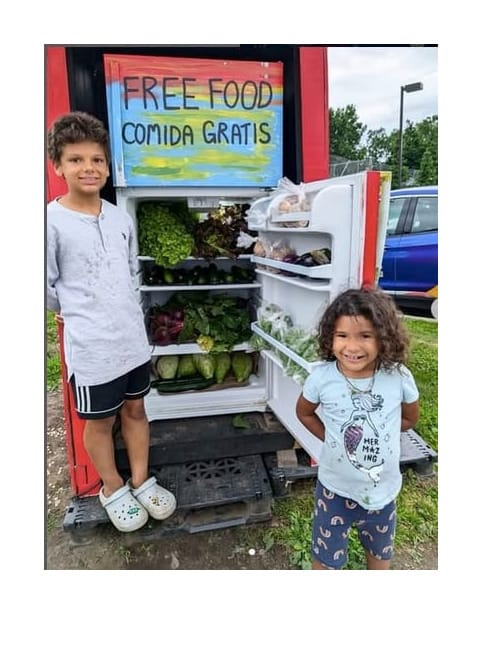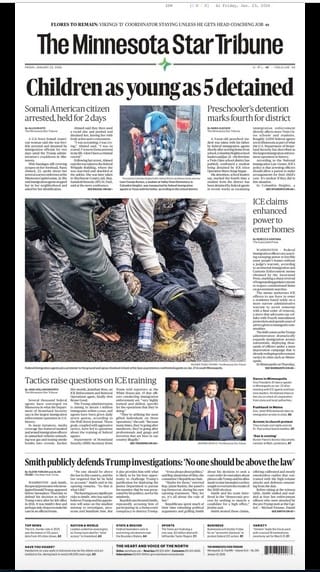Post #29: We Create and Defend Democracy Together

"The concentration of wealth in ever fewer hands is arguably the single greatest threat to social and personal well-being. And the most effective remedy to this is the equalization of wealth and power by extending democracy in our economies.
Not by a top down process of government command and control, but bottom up, through the creation of co-operatives and democratic economic institutions.
If ever there was a game-changing role that the co-operative model could play in changing the paradigms we live by it is to humanize the economy by democratizing it. Without this, no amount of policy making, or regulation, or redistribution, will be enough. Because what one government may do today, another may undo tomorrow." John Restakis, "Co-operatives and the Wealth of Nations. (https://library.uniteddiversity.coop/Cooperatives/Co-operatives_and_the_wealth_of_nations-Humanizing_the_economy.pdf)
The UN has declared 2025 the International Year of Co-operatives. Considering how this year has been going, that's a timely designation. It merits our attention because co-operative principles are going to be increasingly important to our survival, politically and even existentially.
October itself is Co-op month. The addition of the Grocery Democracy Webinar to my Learn, Imagine, Act project has raised my spirits, so I'm eager to talk about this topic. Given what we are now seeing torn apart in the U.S., I think it helps to realize that a certain force for resistance has already been built for us: the co-operative movement.
In case you are unfamiliar, here are the seven International Cooperative Principles:
- Voluntary and open membership
- Democratic member control
- Member economic participation
- Autonomy and independence
- Education, training and information
- Cooperation among cooperatives
- Concern for community
And, while some co-operatives feel that diversity, equity, and inclusion are built into several of these existing principles, many co-ops are declaring this as an eighth, distinct principle, to underscore their commitment.
I Own a Grocery Store with Some Friends, Mandy Makinen
I'm no expert on co-ops, but I also own a grocery store with some friends. I've been a member of Honest Weight Food Co-op for thirty+ years. During that time I've participated in various capacities, from helping unload groceries in the warehouse, serving on committees, stocking shelves, working as part-time staff, and serving as writer and editor for the store's magazine, The Coop Scoop.
During those decades, we've experienced collective growing pains while morphing from small storefront to huge store. I view our co-op as a complex, emergent phenomenon, that nevertheless springs from a simple framework. It feels like a superorganism: it has a deep, fifty year history, and all the challenges that come with a large, changing cast of players who are trying to work together in both concrete and aspirational ways.
I'm not going to romanticize it—it is messy. But it's a real, human effort and as John Restakis says, it humanizes the economy by democratizing it.
For their Grocery Democracy Webinar, John Restakis, author of Humanizing the Economy, teams up with Jon Steinman, who wrote Grocery Story, a study of the role of food co-operatives across North America. They make the case for now being a prime moment to actively promote awareness, update and hone our language and storytelling, and reinforce our commitment to co-operative principles in our communities and the world at large.
In their view, the time is right, because co-operatives embody the worldview of collective well-being, which is directly opposed to authoritarianism.
Citing co-operatives' roots in late-18th century British industrial workers' efforts to gain agency through solidarity, and their importance in the early-20th century for social justice organizations such as the NAACP, these two Canadian authors bring an interesting perspective to the power of the "citizen-consumer." Restakis and Steinman note recent polling indicating Canadian concerns about the destabilizing market and political effects of "the situation to the south," and a strong desire to decrease dependence on U.S. goods. Understandably, Canadians are seeking more control over their supply chains. This is a major impetus of co-ops, especially food co-ops. While exercising this control, co-ops seek to "operationalize democracy."
The grocery.coop website highlights co-ops’ impacts on communities and our world:
• There are more than 30,000 cooperative businesses in the U.S.
• The food co-op communities across the country that own National Co+op Grocers (NCG) work together collectively to strengthen our ability to positively impact our food system and grow the cooperative economy in an inclusive and environmentally regenerative manner.
• Thirty seven percent of food co-ops’ sales come from organic products (compared to 3% at conventional grocers), and 24% of sales at co-ops are from local products (as opposed to 2% at conventional grocers).
• Annually, $9 million was collectively donated to local community organizations by NCG co-ops.
• Co-ops work within our supply chain and industry and with the federal government to advocate for product labeling, disclosure of potentially harmful ingredients or contaminants, and protections for workers within our supply chain.
Democracy, Accountability, Solidarity, Power, and More
Restakis and Steinman emphasize the democratic ethos of co-ops. This enables accountability to customers, through the store's product guide, buying policies, and community giving practices. This is articulated in our co-op's mission statement:
"We are committed to our food policy, which reflects buying practices for food and body aids with consideration towards moral and ethical production, environmental stewardship, healthy living, and safety" Honest Weight Food Co-op, Statements of Conscience
Another of Honest Weight's eight statements of conscience is: "we are committed to donating five percent (5%) of our net profits per year to local non-profit organizations." This donation level, along with prioritizing local farmers and independent local producers, means that much more of the money spent in and generated by the store stays in the community.
This community orientation can translate into very tangible forms of solidarity, as in the recent example of egg prices. When the national market was in the throes of skyrocketing egg prices and supply chain issues (and probable instances of price gouging), our co-op relied on good pre-existing relationships with local sources to keep supplies more steady. They asked customers to limit their purchases to two dozen when supplies were lagging, and adjusted store margins to simply break even, so that eggs could be more accessible and less costly.
It should also be pointed out that these benefits apply to anyone who steps into the store, not only to members.

"Co-operatives have a really crucial role to play in reconnecting people with their neighbors and communities" Jon Steinman, Grocery Democracy
Honest Weight also hosts one of a number of free food fridges in the area. This photo highlights their collaboration with a local Community Supported Agriculture farmer who donates anything customers don't take during their weekly pickup in the store's parking lot. Visit their patreon account to find out more: https://www.patreon.com/freefoodfridgealbany?fbclid=PAZXh0bgNhZW0CMTEAAadBfDmY_TkFMH6DOaILoQR9NCdyZuepTqycY7fKtynPl0VK2pstOgbGFAKsNg_aem_WEF87d_5sWkCf0tUOtdvmQ
Grocery Democracy also considers the notion of power in relation to stakeholders rather than shareholders. All members get a vote, but "unlike corporate shareholders, a food co-op shareholder is entitled to only one vote." No one can buy up extra shares to gain more power. And members are protected from their store being bought out. This is important; our society is currently experiencing the ill-effects of the corporatization and consolidation of everything from healthcare to food, to entertainment, and the press.
This has been going on in the food system for decades, as Rink Dickinson of Equal Exchange explains:
On the supermarket level, there has been ongoing consolidation in the last 20 years. Walmart, which spent years consolidating non-food retail, started selling food in the ‘90s. They are now the single largest seller of food in the country. Kroger—who held the number one spot in food for many years before Walmart entered the scene—continues to acquire regional supermarkets and is on a growth trajectory. Delhaize (Hannafords, Food Lion, etc.) has merged with Ahold (Stop & Shop and Giant) to create the Ahold Delhaize supergroup. Reorganization and consolidation will continue, the names and positions of these agglomerating supermarkets will change, winners will become losers, and vice versa, but the direction is clear.
Corporate ownership of food and product brands is the same: a handful of large corporations acquire and control more and more smaller brands. As Dickinson points out, even if we aren't struggling small farmers ourselves, we are similarly disempowered by consolidation:
Why is consolidation a problem? On one level the answer is less competition, higher prices, and worse service. Beyond those basic economic impacts, having a non-diverse monoculture is also negative for democracy, citizen involvement, and ultimately food justice. The for-profit food system is continuously consolidating and the largest entities are gaining more economic and political power. If supermarkets, food companies, brands, and distributors are more consolidated, who or what is not consolidated? Who does the consolidation benefit?
In the Equal Exchange supply chain, peasant farmers are organized but not consolidated. They have to work together to build any type of control over their buyers, but their control is weak even when selling to alternative trade organizations like Equal Exchange. When these farmers sell to the conventional marketplace they have virtually no control, and consolidation of companies and the marketplace is making things even worse.
Consumers are the other group that is not consolidated and, unlike our farmer partners, not even organized. As long as consumers stay unorganized their power is questionable and, similar to farmers, consolidation is only making things worse. But this group is the sleeping giant. This is the group with the most potential to make a massive change in the food system. And the requirement is to get organized and to think differently. https://www.info.equalexchange.coop/articles/the-citizen-consumer-dilemma-part-one
I agree that we, together, make up the sleeping giant. But if we don't get organized and think differently, things will only get worse. The danger of power, ownership, and wealth becoming vested in the hands of a few corporations and owners is currently on full display in the billionaire buyout of our political system.
In light of my earlier research about Nazi billionaires, I was especially interested in a detail Dickinson drops into his discussion about the consolidation in coffee:
In the last two years, we have seen dramatic consolidation at the top. The primary driver has been JAB, a holding company based in Germany that has gobbled up Peet’s, Caribou, Stumptown, Intelligentsia, Einstein Brothers, Krispy Kreme, and Keurig/Green Mountain.
He doesn't elaborate on this, but I think it is important to know that JAB, which owns many brands and a rather surprising array of chain stores, is held by Germany's Reimann family. The current generation was purportedly surprised and horrified to learn of their family's Nazi involvement and wealth built on forced labor by prisoners in concentration camps.
As touched on in my posts #5 and #9, there are many living descendants of rich German industrialists, like the Reimanns, Quandts, the Flick family, and the Oetkers, of Dr. Oetker brand fame—who consolidated their power through acquiring majority shares of smaller companies, sometimes through Aryanization. After World War 2, these industrialists managed to mostly avoid serious punishment, and survived with their fortunes and reputations relatively unscathed. Unfortunately, that playbook persists.
I hope more of us can get involved or otherwise support co-operative ventures of all kinds. It's time.

https://time.com/5268155/flick-german-billionaires-nazi-past/





